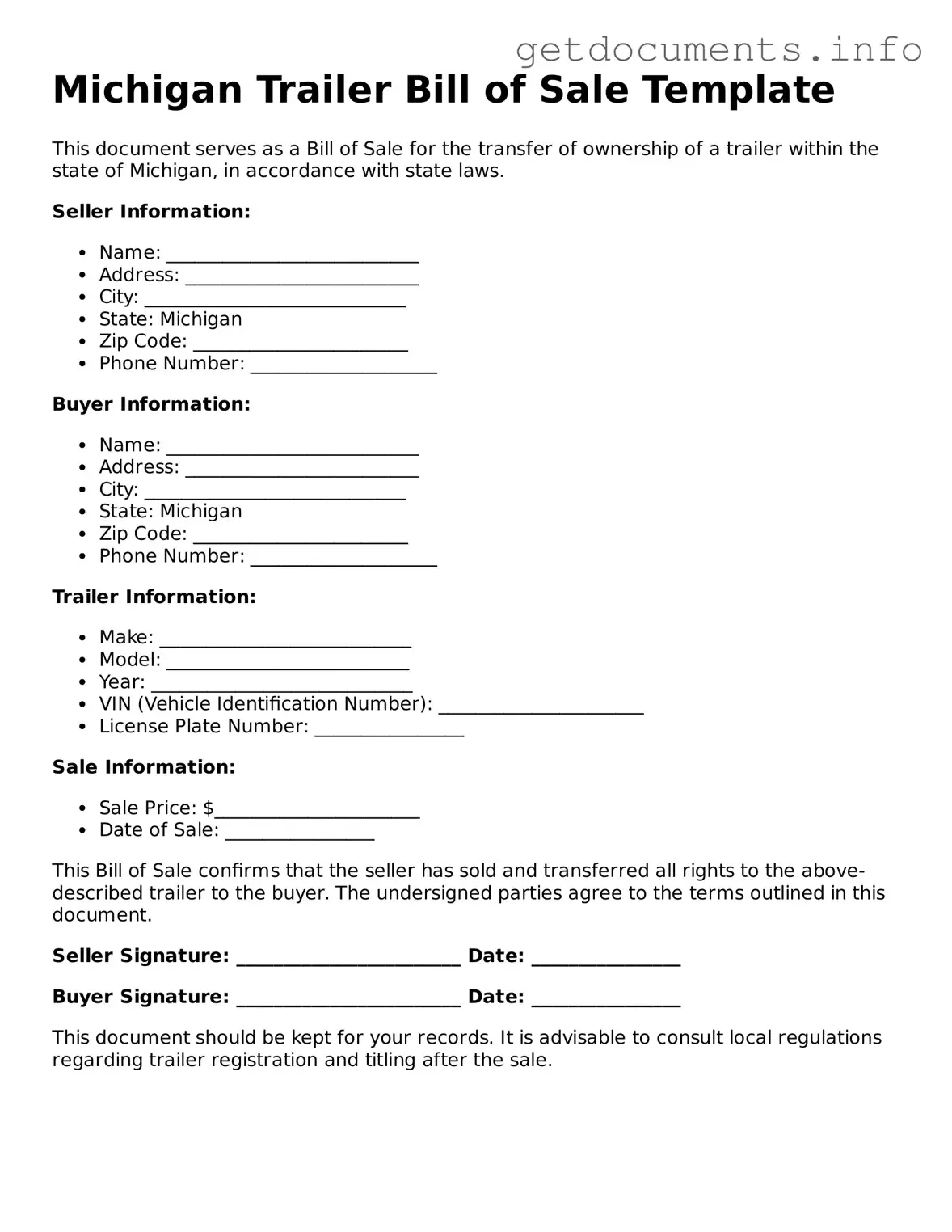Free Trailer Bill of Sale Template for Michigan
The Michigan Trailer Bill of Sale form is a legal document used to record the sale and transfer of ownership of a trailer in Michigan. This form provides essential information about the buyer, seller, and the trailer itself, ensuring a clear record of the transaction. To complete your sale, fill out the form by clicking the button below.
Access Trailer Bill of Sale Editor

Free Trailer Bill of Sale Template for Michigan
Access Trailer Bill of Sale Editor
Got places to be? Complete the form fast
Fill out Trailer Bill of Sale online and avoid printing or scanning.
Access Trailer Bill of Sale Editor
or
⇩ PDF File
